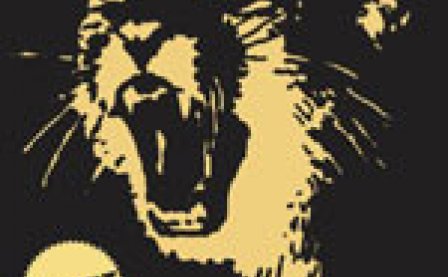The repeated line from LP3's promotional material — that its focus is on Ratatat's keyboards, not on their guitars — isn't exactly on the mark; rather, the focus here is on textures instead of melodies. Classics, their last release, was, if nothing else, about riffage, and lots of it. To my ears, it was something that helped to catapult the record far beyond the relative drudgery of their debut. At the same time, much of the force of Classics was integrally contingent upon the background production: the gurgling electronics, the skittering beats — you can write a riff album with harmonized guitars all over the place, but without that lush, dense bed of sonic technicolor behind it, guiding the inertia of the songs and buttressing those soaring guitar lines, Ratatat would be far less arresting.
So, while it is true that the guitars are taking something of a backseat here, nothing (not even the keyboards) has really stepped in to take their place in providing these songs with a voice, at least not with much authority. It's an amorphous, prismatic affair, in contrast to the linearity of its predecessor, with the sounds washing over you instead of punching straight through you. In a lot of ways, you might get the feeling that you're listening to Classics with the left channel missing; or, if you happened to catch that brief and mysterious 9 Beats bootleg a while back, that you're hearing its more fleshed-out sibling.
Because of this homogeneity — not to be mistaken with monotony — you might have a hard time choosing a "favorite track" as readily as you did from Classics. But if you listen closely, you might choose "Bruleé," an uncharacteristically bright track that emotes in a way previously unheard from Ratatat, featuring an honest-to-god piano plunking away major triads like fish springing out of a river and glinting in the sun. This is followed by "Mumtaz Khan," a heavy, Middle-Eastern-inflected piece that carries one of the strongest guitar presences here. In fact, the album is a little bottom-heavy, and patience will be valuable not only in allowing the subtleties of the first half to really sink in, but also in getting to the more immediate numbers that take the album to its conclusion.
One of the most striking things about "Shiller," the opening track and the A-side to the single that foreshadowed this release, is the presence of harpsichord and autoharp, both of which appear elsewhere on the record. There's also something particularly baroque about the guitar line that closes out the song. And in retrospect, this shouldn't have been terribly surprising; there has always been something very rigid and formal about their tight, interlocking guitar harmonies, something almost fugue-like. It was only appropriate for them to address this tendency so directly at some point, with instrumental signifiers, as it happens.
Among some other sore-thumb moments are "Flynn," a mercifully brief reggae-inspired track, with staccato guitar at the backbeat and synthesized steel drums, and "Shempi," which opens with a beat that's downright clubby. Nowhere outside of these two tracks do I think I've heard them adopt styles in such an overt way. It doesn't suit them; one of their most valuable assets has always been their unclassifiability, and it would be a lamentable fate for them to become little more than an eccentric dance-rock band. Thankfully evidence suggests that this is unlikely, and we can forgive them a misstep or two; they've earned it.
LP3 is a rewarding listen, and you'll have a taste for it if you enjoyed the less powerful moments of Classics or Evan Mast's previous textural work as E*Vax. Just don't expect to find yourself headbanging and air-guitaring alone in your room.
More about: Ratatat




